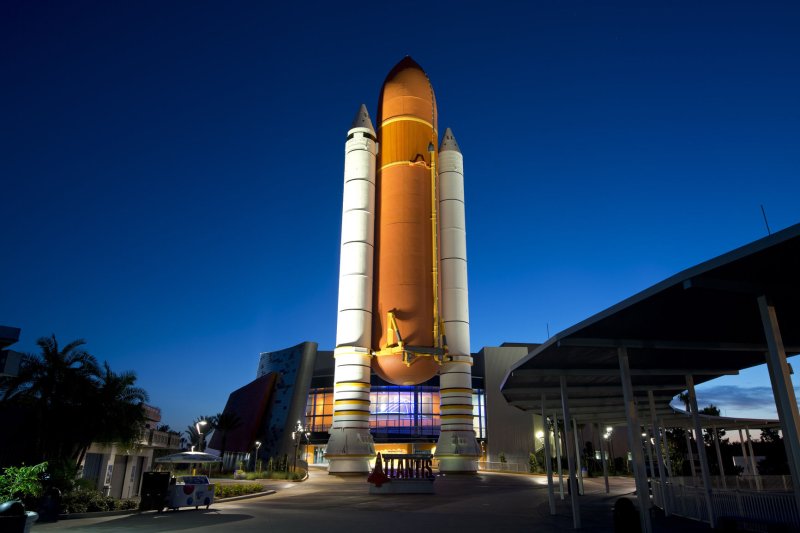Mice who took a trip on the last flight of the Atlantis space shuttle suffered nascent liver damage. File Photo by Joe Marino-Bill Cantrell/UPI |
License Photo
AURORA, Colo., April 20 (UPI) -- If you're a mouse, having spent your whole life in a laboratory, you might relish the chance a trip to space. Unfortunately, new research suggest the price is nascent liver damage.
In 2011, a group of mice took a 13.5-day ride on the final Atlantis space shuttle flight. When they returned, a variety of research teams shared their internal organs.
Researchers at the University of Colorado Anschutz Medical Campus got the mice livers. As their newly published analysis shows, liver health of the mice was compromised.
"We saw the beginning of nascent liver damage in just 13.5 days," lead researcher Karen Jonscher said in a news release. "The mice also lost lean muscle mass. We have seen this same phenomenon in humans on bed rest -- muscles atrophy and proteins break down into amino acids."
"The question is, how does that affect your liver?" Jonscher asked.
Scientists have been closely monitoring the effects of spaceflight on human health, but most research has focused on the effects of microgravity on bones, muscles and the brain, as well as the cardiovascular system.
Previous studies have shown astronauts often return with symptoms of prediabetes. Though the symptoms quickly resolved on their own, the discoveries suggested liver and metabolic issues may arise during space travel.
With the latest findings, detailed in the journal PLOS ONE, researchers have further confirmation on such suspicions.
Now, researchers must work to better understand the risk. A trip to Mars will see astronauts spend at least a year in space. What sort of pressure would this put on the liver?
To find out, researchers need to look at liver health in mice and humans over long periods of time in space.
"Whether or not this is a problem is an open question," Jonscher said. "We need to look at mice involved in longer duration space flight to see if there are compensatory mechanisms that come into play that might protect them from serious damage."















